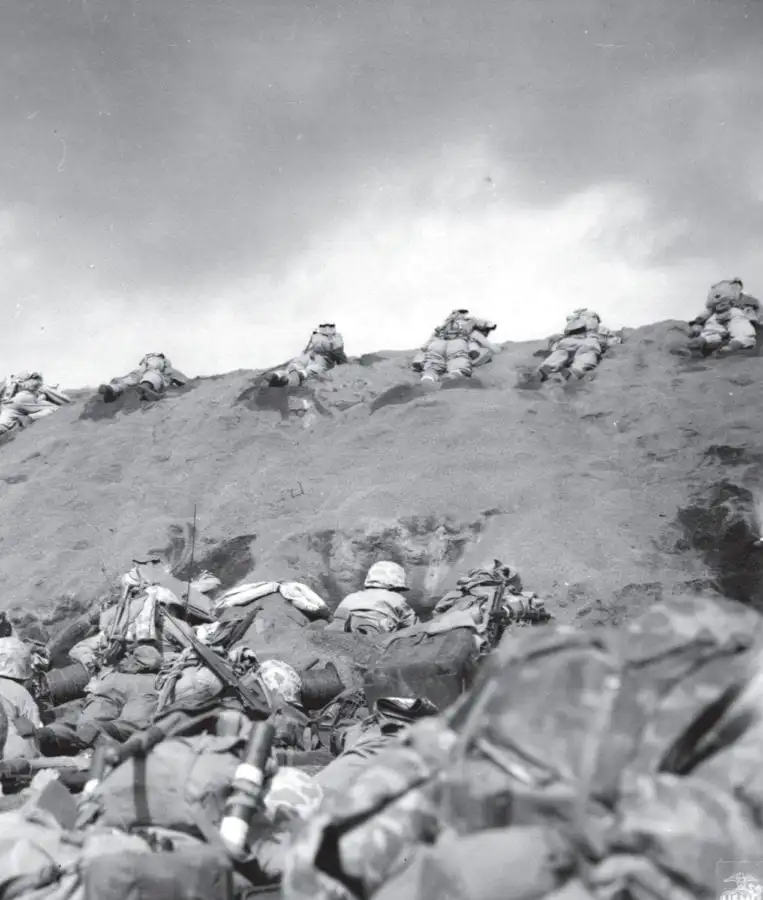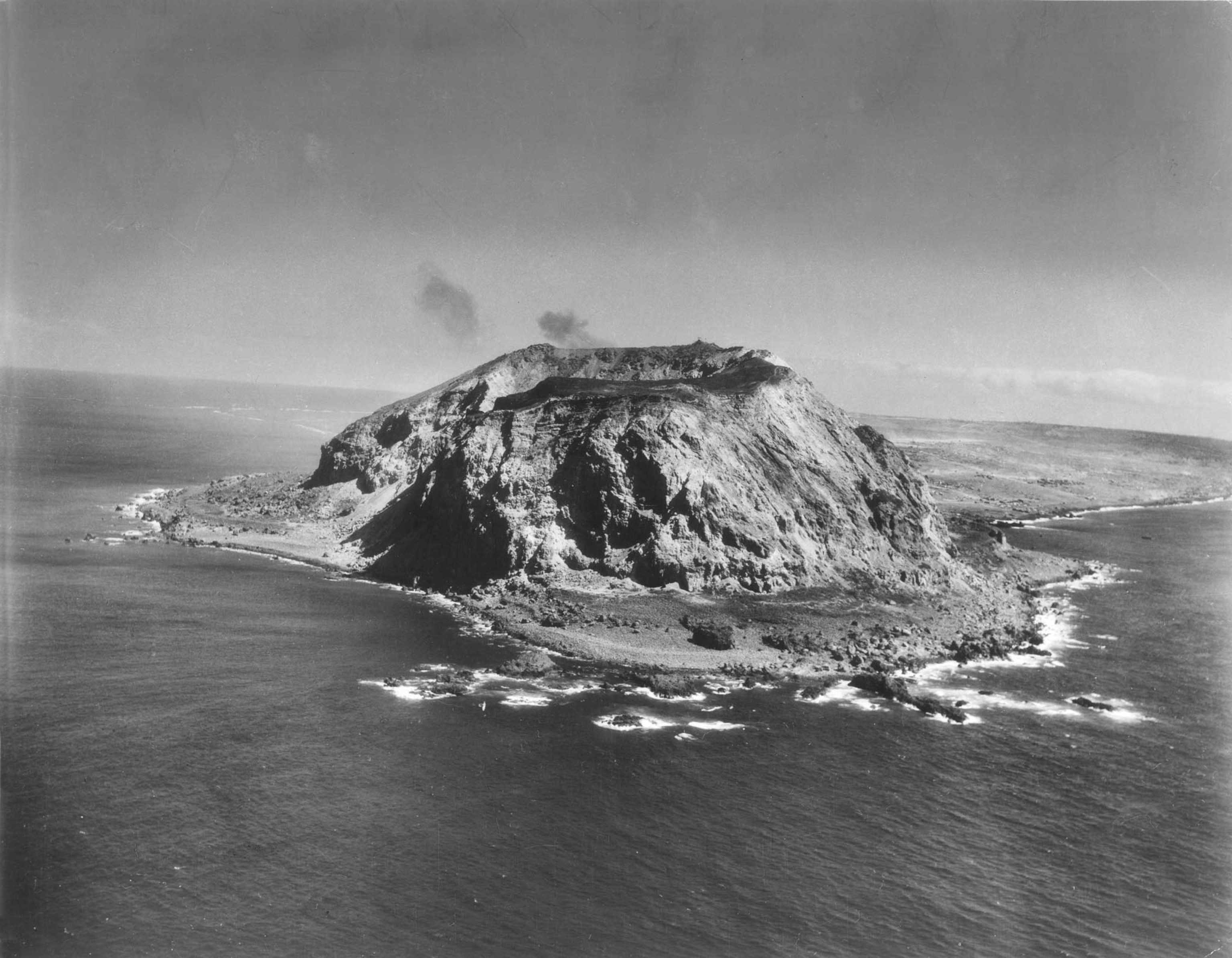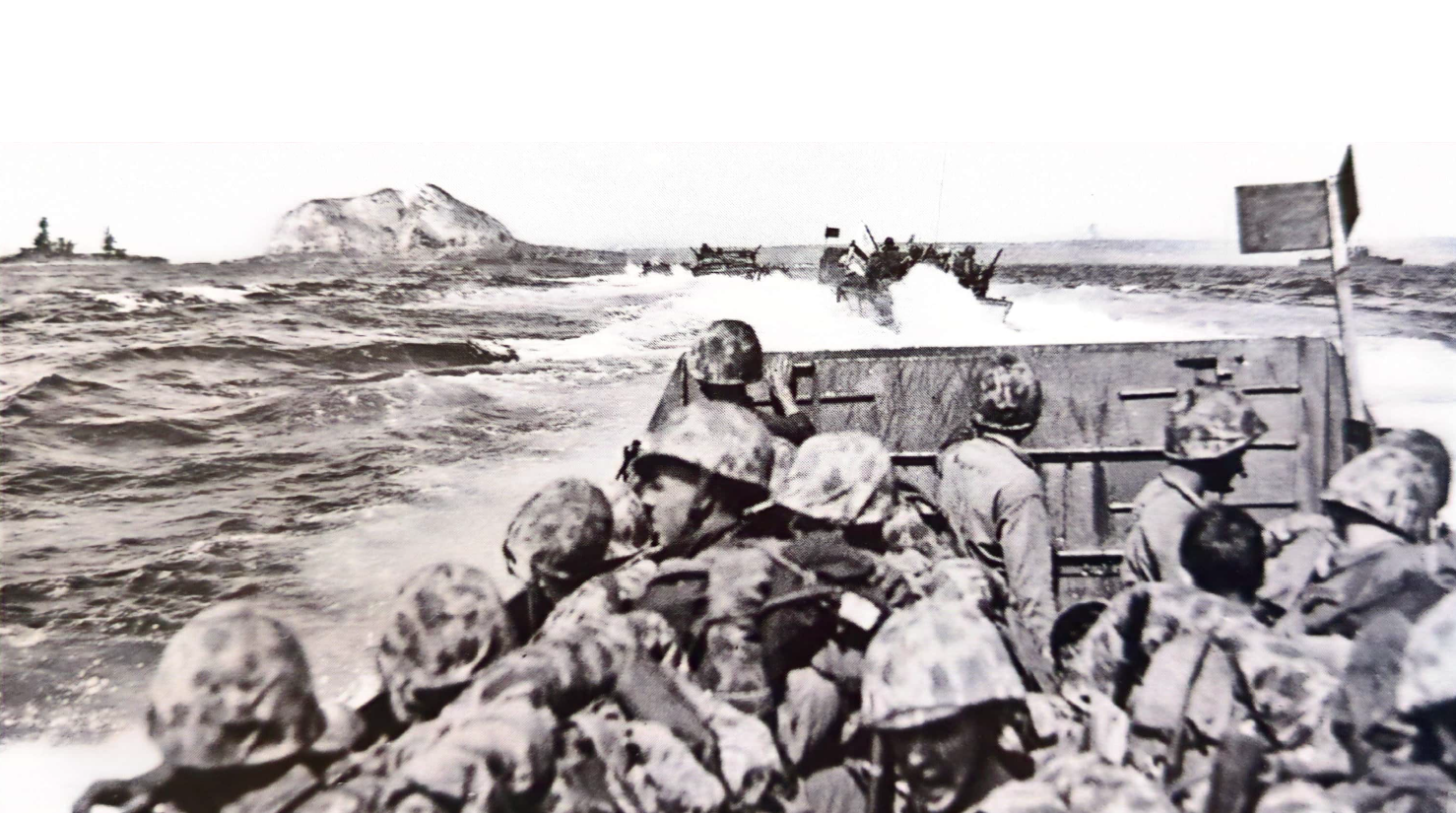D-Day

"Land the Landing Force!"
- Admiral Kelly Turner
"Occasional naval bombardment had been carried out against Japanese facilities on Iwo Jima since June 1944 and this bombing intensified in the weeks leading up to D-day."
"Battle of Iwo Jima", Naval History and Heritage Command
"Major General Harry Schmidt... would provide the landing force, an unprecedented assembly of three Marine divisions, the 3rd, 4th, and 5th... a combined force which eventually totalled more than 80,000 men.
"Assault Preparations", National Parks Service
"Landing at five-minute intervals, six additional waves of Amtracs loaded with Marines followed. At 0905 hours, the first assault troops landed."
- Private Jack H. Lucas
"Marines... hit beaches Green, Red, Yellow and Blue...The 5th Marine Division’s 28th Marines had the mission of isolating Mount Suribachi."
Marine Corps University

Map of Iwo Jima Invasion | Two Flags over Iwo Jima
D-Day would be the first day of the battle. Since the battleground was an island, the Marines needed to invade the beaches and advance into the island. Hospital ships were waiting out at sea to harbor the injured soldiers.

"Resistance Moderate, Terrain Awful"
- Corporal Edward Hartman
"Iwo Jima was an emerging volcano; its steep beaches dropped off sharply, producing a narrow but violent surf zone."
"D-Day", National Parks Service
"The sand was so soft it was like trying to run in loose coffee grounds."
- Corporal Edward Hartman
"We need to reconsider the power of bombardment from ships; the violence of the enemy's bombardments is far beyond description."
- General Tadamichi Kuribayashi
"I saw their numbers swell from several hundred to a few thousand. Each new wave piled on top of the last one."
- Radioman Tsuruji Akikusa
"The world fell in on them [the Marines] as pre-registered mortar fire erupted on and around every living man. The Marines have walked into... the kill zone."
- Two Flags over Iwo Jima, Eric Hammel
"Marines land on Iwo Jima" | United States Marine Corps

"Marines under fire on Red Beach" | Defense Media Network
The terrible and unanticipated battleground conditions would slow the Marines down, preventing tanks and large weapons from quick attacks. Meanwhile, the Japanese were used to the conditions of the island, giving them an advantage. The Marines could not see the Japanese hiding underground, so they did not know where to attack.



